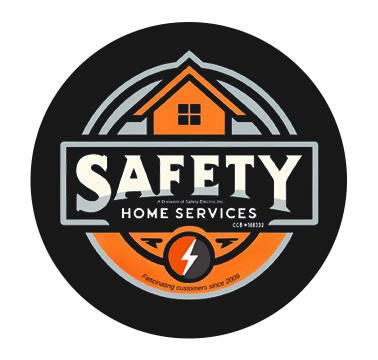Introduction Electrical work is crucial to home maintenance and improvement, ensuring your home’s safety and functionality. While some homeowners enjoy tackling DIY projects, electrical work can be challenging and hazardous. Understanding the pros and cons of DIY electrical work versus hiring a professional can help you make informed decisions about your home’s electrical needs. This guide will explore both approaches’ advantages and risks and clarify which tasks are best left to the experts.
Pros of DIY Electrical Work
- Cost Savings
- Benefit: One of the most significant advantages of DIY electrical work is the potential for cost savings. You can avoid the labor costs of hiring a professional electrician by handling minor tasks yourself.
- Example: Replacing a light fixture or installing a new outlet requires basic tools and minimal investment.
- Convenience and Flexibility
- Benefit: DIY projects allow you to work on your own schedule without waiting for an appointment or managing contractor timelines.
- Example: You can address small issues like resetting tripped circuit breakers or replacing blown fuses immediately without scheduling a service call.
- Personal Satisfaction
- Benefit: Successfully completing a DIY electrical project can provide a sense of accomplishment and boost your confidence in handling home maintenance tasks.
- Example: Wiring a new light switch or installing a ceiling fan can be gratifying for those who enjoy hands-on projects.
Cons of DIY Electrical Work
- Safety Risks
- Risk: Electrical work can be hazardous, with the potential for electric shocks, burns, or even fires if not done correctly.
- Example: Incorrectly wiring an outlet or failing to turn off the power before starting a project can result in serious injury.
- Lack of Expertise
- Risk: Most homeowners lack the technical knowledge and experience of professional electricians, increasing the risk of mistakes and code violations.
- Example: Improperly installed wiring or fixtures can lead to electrical failures or pose safety hazards over time.
- Code Compliance
- Risk: Electrical work must comply with local building codes and regulations, which can be challenging for DIYers to navigate.
- Example: Failure to adhere to code requirements can result in failed inspections, fines, or difficulties when selling your home.
When to DIY
- Simple Tasks
- Tasks: Replacing light bulbs, installing battery-operated smoke detectors, resetting circuit breakers, or changing outlet covers.
- Reason: These tasks are low-risk and require minimal technical knowledge, making them suitable for most homeowners.
- Minor Fixture Replacements
- Tasks: Replace light fixtures, install ceiling fans, or swap out electrical outlets (with proper precautions).
- Reason: With the right tools and safety measures, these projects are manageable for DIY enthusiasts with experience.
- Routine Maintenance
- Tasks: Tightening loose outlets or switches, replacing broken outlet covers, or performing visual inspections of your electrical system.
- Reason: Regular maintenance helps prevent bigger issues and can be safely handled by most homeowners.
When to Hire a Professional
- Major Electrical Installations
- Tasks: Installing new circuits, upgrading your electrical panel, or rewiring a portion of your home.
- Reason: These tasks require extensive knowledge, experience, and adherence to local codes, making them unsuitable for DIY projects.
- Electrical Troubleshooting
- Tasks: Diagnosing electrical problems, resolving frequent circuit breaker trips, or identifying the cause of power outages.
- Reason: Professional electricians have the tools and expertise to accurately diagnose and fix complex issues safely.
- Home Renovations and Additions
- Tasks: Adding new rooms, remodeling kitchens or bathrooms, or incorporating new electrical systems into your home.
- Reason: These projects often involve significant electrical work that must comply with building codes and require a professional’s skill.
- Safety Inspections
- Tasks: Conducting comprehensive safety inspections, ensuring code compliance, and providing certification for insurance or resale purposes.
- Reason: Professional inspections guarantee that your electrical system meets safety standards and can identify potential hazards.
Conclusion While DIY electrical work can be rewarding and cost-effective for simple tasks, it’s crucial to recognize the limits of your expertise and prioritize safety. Licensed professionals should always handle major advanced electrical services and troubleshoot to ensure compliance with local codes and prevent accidents.
At Safety Home Services, we are dedicated to providing reliable, professional electrical services that ensure the safety and efficiency of your home. Whether you need routine maintenance, complex installations, or expert troubleshooting, our team of certified electricians is here to help.
Call to Action Don’t risk your safety with DIY electrical work. Contact Safety Home Services today for all your electrical needs. Visit our website at Safety Home Services or call us at (971) 345-5650 to schedule an appointment with our expert electricians. Ensure your home is safe and efficient with professional electrical services you can trust.





